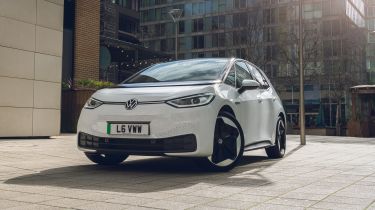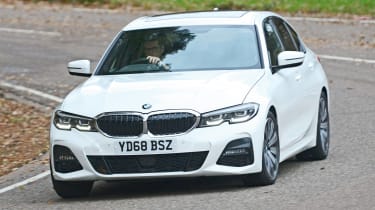What is a car's P11D value?
We explain how to calculate a car’s P11D value and how it impacts company car tax

When choosing a company car, the key figure you’ll need to consider is a car’s P11D value. This differs from the on-the-road (OTR) you’ll see in most adverts in brochures, and is important, as it’s used to calculate the Benefit-in-Kind (BiK) value of a company-car, along with its CO2 emissions figure, determining the amount of tax you’ll pay annually.
But what exactly is a car’s P11D value? In this guide, we’ll run through exactly how a car’s P11D value is calculated, how you can check it, and what it means for your annual company-car tax bill.
What is a car’s P11D value?
A car’s P11D value is made up of the total list price of a car including any specified optional extras such as alloy wheels, paint, upgraded upholstery or any technology upgrades. VAT and any extra costs such as delivery charges are also included in this figure. Yet, unlike a typical manufacturer Recommended on the Road (ROTR) prices, a car’s P11D value excludes the first year registration fee and vehicle tax.
This figure is important for businesses when they are looking to place orders for company cars. When a company comes to buy or sell a car, the employer is required to fill out a P11D form that determines the Benefit-in-Kind (BiK) value of the car, including any extras or modifications that may have been added. This is subsequently sent to HMRC so they can calculate the amount of tax you’ll have to pay each year on your company car.
To keep tax bills as low as possible, we advise choosing a newer car with a low P11D value and a low company-car tax band.
How does the P11D value impact company car tax?
Once a car’s P11D value is confirmed, this value is then used to determine the taxable Benefit-in-Kind (BiK) figure, which is the amount that you’ll be taxed on annually. For new cars or those registered after 1 January 1998, you’ll need to know the CO2 emissions figure, as this determines the company-car tax banding for your car.
The company-car tax bandings run from 1% up to 37%, with zero emission models sitting in the lowest bandings, while higher emission models sit towards the top. To work out the BiK amount, you divide a car’s P11D value by the tax banding percentage that your car sits in, which gives you the resulting BiK figure that’s subject to tax.

To give you an example, we’ll use the BMW 318i M Sport saloon. This model has a P11D value of £35,000 and a CO2 emissions figure of 154g/km. This places it in the 35% banding (£35,000 x 0.35%), resulting in a BiK amount of £12,250. This means that at the 20% tax rate the annual bill would be £2,450, rising to £4,900 at the 40% rate, and £5,512 at the highest 45% rate.
Finding out a car’s P11D value and calculating your company car tax liability is a great way to budget and see whether a car is right for you. To help you work out your company-car tax liability, the HMRC has an online company-car tax calculator that you can find here.
How to calculate P11D value of older and used cars
Things are slightly different for cars that are aged 15 years or older. Old or classic vehicles are still valued through the P11D system, however their value is determined by looking at the reasonable value that the manufacturer, importer or distributor would have been expected to have sold the car for – only if there is no list price available.
The amount you pay in tax is then determined via the car’s engine size, with buyers paying a percentage per year of the car’s P11D value depending on the size of the engine. Cars with 0-1,400cc engines are taxed 15% of their value, while 1,401 to 2,000cc and over 2,000cc cars pay 22% and 32% respectively. Therefore, it is recommended that company car buyers looking at older cars stick to those with smaller engines to avoid soaring additional costs.
One thing to bear in mind, however, is that the percentage is only applied to a classic car’s P11D value if it is over £15,000; if the value is quoted as under that then the percentage will instead be applied to the vehicle’s original list price.
Want to turn heads in the corporate car park? Check out our list of the top 10 best company cars
Recommended

MoT guide: cost, info and what happens if your car fails
Most Popular
Tips & advice

Car dashboard warning lights: what does each symbol mean?

Electric car charging stations: public networks, charger types, apps and maps






